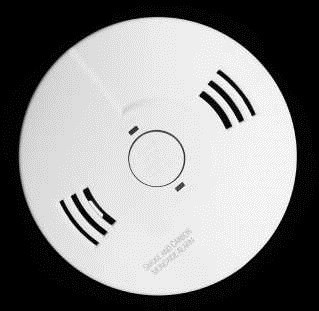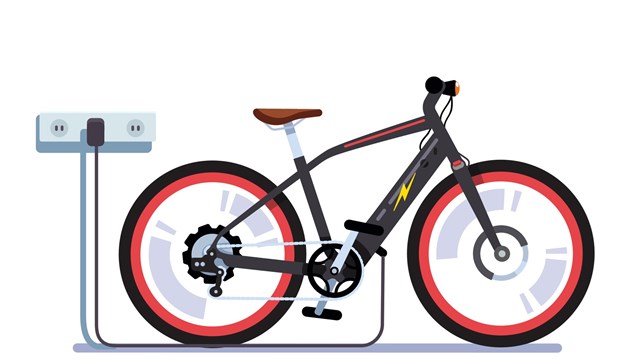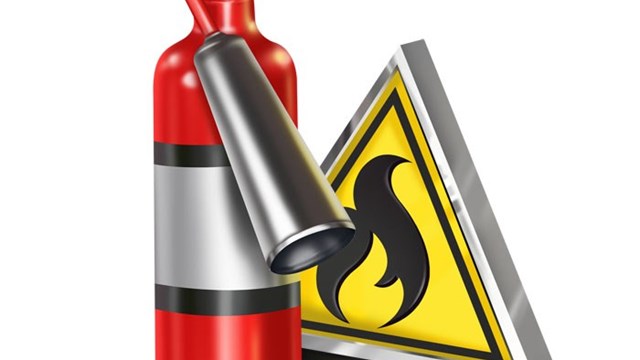
Everyone likes to think that they are safe all the time, but often people take for granted that everything in their condo or co-op is up to snuff and they forget about simple things like changing batteries in smoke detectors or securing window guards. One look through the morning papers and you will read about someone who neglected to take a proper safety measure in their home.
Then there are the more advanced safety precautions that owners and boards need to worry about, such as asbestos removal, lead paint and installing carbon monoxide detectors. There are laws that govern the way that co-ops and condos should go about making sure all of these things get done, and organizations that inspect and find those that aren't. But it's important that anyone living in a co-op or condo know what they are expected to do, and what someone else is expected to get done for them.
"When it comes to condos in the city, unit owners are responsible for complying with regulations dealing with window guards, smoke detectors, asbestos removal and lead paint abatement inside the unit," says Richard Walsh, an attorney with the Long Island-based Horing, Welikson & Rosen, P.C. "The board is responsible for repairs and other health and safety laws regarding common elements."
In co-ops, since the board is listed as the owner rather than the individual units, it is the responsibility of the co-op to install window guards, smoke detectors, check for asbestos, lead paint and do any repairs to building exteriors, including facades.
Measures concerning all of these safety items are defined in the New York City Housing Maintenance Code (HMC), which is established by the NYC Department of Housing Preservation and Development (HPD).
"Clearly it is important that these laws exist to protect citizens' safety in New York," says Seth Donlin, press secretary for the HPD. "They are in place in many instances to make sure that proper housing and quality to tenants regarding safety is being provided."
Where There's Smoke…
Along with residents themselves, any multifamily building's first line of defense against fire is, of course, the smoke detector. According to Manhattan-based attorney Marc Schneider, New York law requires that every multiple dwelling (which includes co-ops and condos) must be equipped with "…approved and operational smoke detecting devices in conformity with the state fire prevention and building code."
According to Robert N. Bittar, president of Complete Fire Safety in Brooklyn, smoke detectors are useless against fire unless they're kept in working order. "You need to make certain that your smoke detectors are working, and that they are maintained," he says. "Change the batteries on your child's birthday [to help you remember] and keep the detector clean and free of dust."
Schneider adds that while it is the responsibility of the building owner or management team to maintain the larger fire alarm systems within the building, shareholders and unit owners must care for their own individual detectors. Not doing so puts the entire building at risk.
"In condos," says Walsh, "unit owners are responsible for complying with regulations regarding window guards, smoke detectors, asbestos removal and lead paint abatement inside the unit, while the board of managers is responsible for repairs and other health and safety laws in the common elements. Areas that should be of concern to co-ops as part of the primary responsibility as landlord include window guards, smoke detectors, asbestos, and lead paint."
"Smoke detectors are also the responsibility of landlords to install and to maintain, although in a co-op the cost of repair or replacement should be passed along to the shareholder who removes the smoke detector, fails to replace the battery or damages the detector," adds Schneider.
Also, Bittar stresses the importance of keeping fire extinguishers in both individual units and common areas, and inspecting them regularly to make sure they're fully functional. "A multi-purpose, dry chemical Class ABC fire extinguisher is considered the best choice for general home use," says Bittar.
On Guard
The law concerning window guards states that any home where a child under 6 resides, there must be a window guard in place in every window, except where the window leads to a fire escape.
Although window guards are under the authority of the Department of Health and Mental Hygiene (DOHMH), the HPD can still issue violations if their agents see window guards that are faulty during their inspections. Plus, they soon will have more power in this regard.
"We don't have a particular statute that authorizes it but we have a statute that authorizes us to issue violations for generally unsafe conditions. We have been issuing violations for window guards under that guideline," says Donlin. "However, DOHMH is going to allow us to act as agents for them and it will now be a DOHMH violation if we find something starting this year."
"If someone removes a window guard or doesn't have one and they have a child living there that falls under the law, they can get in big trouble," says Norman Lazarus, an inspector with Annual Apartment Inspections in the Bronx. "No one is allowed to remove a window guard simply because they don't want it."
The owner of a condo is responsible for getting window guards and the co-op board must have them installed once notified of a child under six living in the home.
"To make sure that everyone stays compliant, co-ops should send shareholders an annual survey requesting the ages of children residing in each apartment," Walsh says. "Condos should consider adopting a similar survey, even though the individual unit owners are responsible for the conditions inside their units."
HPD has the authority to issue a violation for improper window guards through the Department of Health and Mental Hygiene. Window guard violations are then determined at the Health Department's Administrative Tribunal. All violations of the Health Code start at $200.
Get the Lead Out
If there are children under the age of seven living in an apartment and there is lead paint present, a co-op must take immediate corrective measures. The landlord is strictly liable if corrective measures are not taken.
Under Local Law 1, it is the owner's responsibility to remediate lead hazards, to notify tenants and investigate the existence of possible lead hazards, correct any lead hazards that are found using safe work practices, make apartments lead-safe on turnover and do all repairs and renovations using safe work practices.
"Local Law 1 clearly defines who is responsible," Walsh says. The co-op board must be responsible for any potential lead hazards and take care of them, and the unit owners of a condo need to inspect for any possible lead hazards themselves.
According to Lazarus, condo owners should report any problems they deal with involving cracked or peeling paint or plaster because it could be a sign of bigger problems in the entire building.
Move It Out
New York buildings are supposed to be asbestos-free, according to Donlin. However it's not the HPD's responsibility to monitor that. The Department of Environmental Protection (DEP) is in charge of any asbestos issues in the city.
According to the DEP, every owner of a building where asbestos abatement activity occurs shall be responsible for the performance of the asbestos abatement activities by his/her agent, contractor, employee or other representative.
When it comes to condos and co-ops, Walsh recommends doing surveys for lead paint and asbestos as well, and then following up the surveys with a physical inspection to ensure that all the laws and regulations are being followed.
"Lead paint or asbestos could affect other areas of the condo through water leaks or improper removal, so it's important to report any problems," he says. "In addition, the statutes, rules and regulations could change or a court could ignore prior court decisions and apply the Housing Maintenance Code (or other statutes) to condos. In addition, by surveying unit owners annually, the board of managers may be able to eliminate potential problems while they are still minor and before they become a big headache."
Detecting Safety
Local Law 7 came into effect in 2004 and it deals with the rules and regulations regarding carbon monoxide detectors in the homes, something that could save the lives of thousands of New York residents each year.
The carbon monoxide law requires that owners provide and install at least one approved carbon monoxide alarm within each dwelling unit. The carbon monoxide alarms must be installed within fifteen feet of the primary entrance to each sleeping room. This applies to all multiple dwellings and one- and two-family homes.
Owners must file a Certificate of Satisfactory Installation within 10 days from the date of installation with HPD's Borough Code Enforcement office in the borough in which the dwelling is located, Donlin says. "Owners are required to have them in place when tenants come in and required to replace them at their own cost if they become defective in the first year. Other than that, it's the tenants responsibility to maintain and replace batteries."
Since they are only around $25, Lazarus doesn't think that owners and boards should quibble over who is going to pay and how they are going to get installed. Everyone should make sure that they have a working detector in their home.
"Smoke detectors are also the responsibility of landlords to install and to maintain, although in a co-op the cost of repair or replacement should be passed along to the shareholder who removes the smoke detector, fails to replace the battery or damages the detector," says Lazarus. "We tell people that the best time to replace the batteries is when you set your clock forward or back. This way, you know it is being done every six months."
Don't Be in the Dark
Following the events of 9/11 and the blackout that wiped out power in the city back in 2003, in 2004 Local Law 26 was enacted, which requires glow in the dark strips on steps in high rise commercial buildings. However, the photoluminescent materials are not required by law for condos and co-ops.
That doesn't mean that your condo or co-op board shouldn't think about installing them for safety reasons anyway, as the glow-in-the-dark path can be very useful in helping people out of the building in the case of an emergency.
As Donlin and Walsh made clear, even though it is the co-op board who is going to be held responsible for any violations, the shareholders should still be involved in the process of making sure that their homes are compliant and helping out as best they can. Just because something is not spelled out in the law doesn't mean you're exempt from responsibility for it.
"It's important that people remember why they are doing these things in the first place," Lazarus says. "It's all about keeping people safe."
Keith Loria is a freelance writer and sports reporter living in Larchmont, New York.






Comments
Leave a Comment